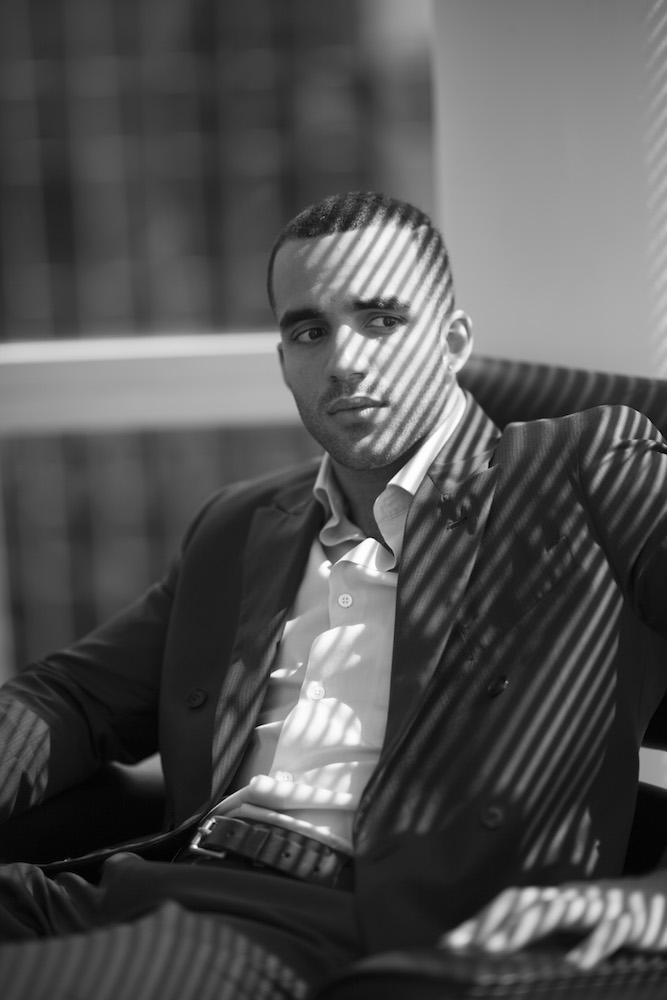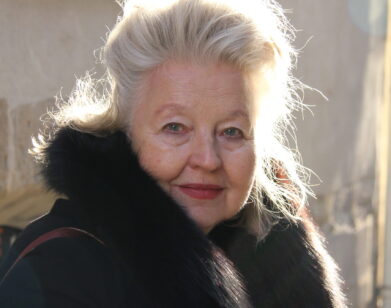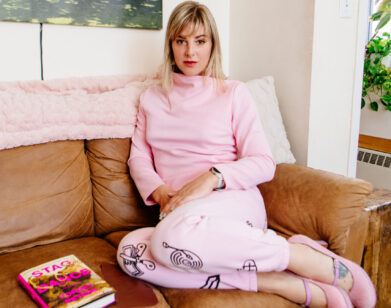Danell Levya’s Olympic Triumph

ABOVE: DANELL LEVYA. PHOTO COURTESY OF TIMUR EMEK.
Months before this year’s Olympics, and only weeks before the National Gymnastics Championships—a qualifier for the Games—Danell Levya was injured while breaking up a fight between his family’s dogs. The injuries severely impacted his training, and though he fought through to compete, he was named an alternate for Team USA. Having won a Bronze medal at the 2012 Olympics in London, the 24-year-old was understandably disappointed.
“That’s not part of the plan. That’s not what you want to happen,” Levya explains over the phone. “I kept training as if I were going to compete because that’s the mentality I had to have.” In a bittersweet take on the classic athlete defies all odds tale, Levya was eventually called up to compete after national team member John Orozco tore his ACL.
Despite his initial alternate status, Levya was only one of two US male gymnasts to walk away with a medal—in fact getting two silvers, for parallel bars and horizontal bars. We recently spoke with the Cuban-born, Miami-raised athlete to discuss that dog-related injury, the demands of being an Olympian, and his possible foray into acting.
ETHAN SAPIENZA: I have to say congratulations.
DANELL LEVYA: Thank you so much.
SAPIENZA: How have things been since you’ve gotten back home?
LEVYA: Pretty awesome. It’s nonstop which means things are good. I have something to do.
SAPIENZA: How did you first get into gymnastics?
LEVYA: My parents were watching a gymnastics video and I didn’t know what it was. I was enamored by what I saw: people flying. I was like, “I don’t what that is but that’s what I want to do.” It’s funny because I was three years old—clearly I didn’t what it was—and I didn’t know that my parents were both gymnasts as well. That’s basically where it all started.
SAPIENZA: Did you feel pressure to follow in their footsteps? Did they want you to do it?
LEVYA: No, not at all. My mom was the one who didn’t think it was such a good idea because in Cuba they have this mentality that gymnasts have to have a specific body type. Their arms couldn’t be too long, their feet couldn’t be too flat—they had to be proportional. I was the complete opposite of that system. On top of that, I was very uncoordinated and I would never really pay attention at all. My stepdad was the one who saw my immense passion for the sport. As soon as we started though my mom became 100 percent supportive.
SAPIENZA: I know your dad is your coach. I can’t imagine what that’s like.
LEVYA: It’s cool. He doesn’t treat me differently than any of the other gymnasts. We’re all just gymnasts. My dad was just the coach. He never was harder on me or gave me extra time. If we wanted his attention we needed to do well.
SAPIENZA: What do you think of his sideline celebrations? He gets very excited.
LEVYA: His antics? [laughs] I think it’s awesome. He’s been like that that since he started coaching, not only professional gymnastics too. If you watch any of his younger athletes he’s just as excited.
SAPIENZA: What’s your training regimen like?
LEVYA: It was Monday, Tuesday, Thursday, Friday from 9 to 4:30 or 5, with an hour for lunch and stuff. Wednesday and Saturday we went in at 12:30 just to stay active.
SAPIENZA: Do you have to strictly monitor your caloric intake and all of that?
LEVYA: Not really. The other guys on the team during the Olympics—it was kind of funny to see them count calories and weigh themselves. Meanwhile I was just doing me. It’s not that I would eat horrible or anything. I would eat healthy. I just wasn’t as stressed as the other guys.
SAPIENZA: When you’re practicing and things are particularly grueling, what do you find keeps you going?
LEVYA: When I was training and I’d have a bad day, I let the negative side of training go and reminded myself of why I was doing this. When I started dating my girlfriend it became a lot easier because she’s a gymnast and she was very supportive. It became easier because I was remembering the people I was doing it for as well.
SAPIENZA: A lot of Olympic athletes talk about how they miss out on “normal” aspects of life due to training. Is there anything you feel like you’ve missed because of gymnastics that you wished you hadn’t?
LEVYA: I’m sure there are normal things I’ve missed out on that people do, but that’s the point: to break away from normal. They aren’t grueling sacrifices. They’re not things that make me feel horrible and terrible and sad, because how many people can say they’ve won an Olympic medal? How many people can say they’ve competed in two Olympics? Everybody makes sacrifices. Everybody goes through these kinds of things. It wasn’t something that I would cry myself to sleep, like, [fake whining] “Because of training I can’t go to parties!” I appreciate everything that my family helped me understand and everything I’ve been working to reach.
SAPIENZA: When you’re on the high bar, flipping through midair, what’s going through your mind? Are you planning your next step or are you totally at ease?
LEVYA: For me it’s about the feel of technique and skill. Gymnastics is a very, very difficult sport and requires understanding every single muscle in your body. [It requires] understanding where everything needs to be, when it needs to be [there], and then execution. For me I would go by the feel of where my body was, how the technique was happening and—when I’m in midair, of course—catching the bar.
SAPIENZA: What was it like when you were first named to the Olympic team in 2012?
LEVYA: When I was training I [didn’t] think, “Okay, I’m going to make the Olympic team.” My plan was, “I’m going to win the Olympics.” If I didn’t shoot that high then I was training for no reason. Making the Olympic team—it was awesome. It was great! In reality it was like, “Good, this step has happened, now it’s time to move onto the real goal.”
SAPIENZA: This year you were originally named as an alternate. What did you think when that happened? Did that put a chip on your shoulder?
LEVYA: Not necessarily. It was hard. I wanted to make the team because I still wanted to win the Olympics, of course. I didn’t have the points the committee was looking for. It happens though. They still named me an alternate, which was awesome because that meant I was a part of the team, one way or the other. Once I was named to the team it was very bittersweet because of the situation. It was very unfortunate. It was devastating really. [John Orozco] is a friend and a teammate. We’re all very close and for that to happen was hard. I knew I had a job to do and that’s what I set out to do.
SAPIENZA: I read that a couple months before the games you were injured by your dogs. How did that affect your training process? Did it really impede you?
LEVYA: Luckily the wound care I went to did such an amazing job. They helped me out so much and so quickly. But yeah, it definitely affected my training. I had the National Gymnastics Championship—which is the first of the two trials—four weeks after that. I couldn’t train at all for two weeks basically, and then I was only able to train for a week and a half. I had the option to petition straight to the Olympic trials because I wanted to prove to myself that I was able to do it no matter what. I did and I was happy with my performance, but as I said I didn’t receive the points they were looking for. But everything happens for a reason.
SAPIENZA: After you were finished competing on the final day of gymnastics you put on your podium attire, despite the fact that multiple competitors had yet to go, right?
LEVYA: That was on the first of the two finals, yeah. I did my routine and I felt happy with it. I felt that I had done well enough to be a medal contender. I did it because of that and also because I was wishing for [good] luck with having it on.
SAPIENZA: You weren’t trying to intimidate anyone?
LEVYA: [laughs] No, not really.
SAPIENZA: Have you gotten recognized a lot back home?
LEVYA: Yeah, definitely. It’s pretty cool. It’s pretty surreal. I got recognized after London but this is completely different. It’s crazy.
SAPIENZA: Who’s the coolest person who has come up to you to say they’re a fan?
LEVYA: A couple people actually, but certainly Zac Efron. He was cool because I had just done a segment on the Today show. He went to go up and I said, “Hey, what’s up?” He was still walking and said, “Hey!” But then he turned around and noticed me and he got super excited. He was like, “Oh man! You’re awesome! You did so good!” The other person was Dascha Polanco from Orange is the New Black. She was super excited too. She knew she knew me but she didn’t know why and when she [realized] she was like, “Oh my god, I know who you are!” She gave me a huge hug and it was a lot of fun.
SAPIENZA: How long do you plan on doing gymnastics for?
LEVYA: I’m taking some time off. I’m not going to really stop training, but I am going to shift my attention towards something else. I’ve always been passionate about getting into acting. That’s something I want to get into and what I’m focusing on right now. I’m going to go to L.A. and take classes and really work hard. It’s not like I think it’s going to be easy and say, “I’ve done the Olympics, acting will be nothing.” I know it’s going to be hard. It’s going to take a lot of effort and I’m ready to do that.
SAPIENZA: Do you still see yourself competing at the next summer Games?
LEVYA: That would be amazing. I hope in two years or so I get back to competition. Like I said I’m not going to really stop training. I’ll be training all the time. It would be incredibly amazing to make the team in four years. So yeah, we’ll see.
SAPIENZA: Do you have any advice for those who aspire to compete in the Olympics?
LEVYA: Never give up on your dream. It’s so cliché but it’s true. It was something I always had on my mind. Also to listen to the people who are trying to help you, like coaches and parents and stuff like that. They’re trying to be helpful and supportive, and you should be grateful.
FOR MORE ON DANELL LEVYA, FOLLOW HIM ON TWITTER.






